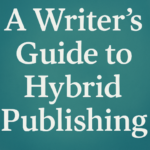
How to Get a Book Deal: 5 Essential Steps
April 12, 2025
Hybrid Publishing: Is It the Right Path for You?
April 14, 2025Understanding the difference between professional and amateur novelists is essential for any writer aiming to grow their craft and build a successful career. While both may share a passion for storytelling, the way they approach writing, publishing, and personal growth is often worlds apart. In this article, we’ll break down the habits, mindsets, and strategies that separate professionals from amateurs—and how you can begin to bridge that gap.
Amateur novelists often work for free, spending hours writing and publishing content without a clear plan for getting paid. They hope that writing all this free content will attract a client any client. They often rely on an algo to help them reach readers, focusing on vanity metrics like follower counts, views, likes, reads, and shares. Amateurs also tend to shoehorn their work into pre written templates or use AI tools because they believe this is the way to success, often influenced by big gurus in the field.
In contrast, professional novelists understand the value of their time and treat writing as a business. They avoid wasting time on boring projects or endless rewrites. Professionals know how to meet deadlines and focus on projects that align with their strengths. They are not distracted by vanity metrics or chasing after energy-sucking clients. When professionals do take on writing gigs, they ensure they are compensated fairly and avoid the trap of unpaid invoices. They prioritize long-term success over quick wins, investing in their craft and navigating the challenges of publishing with confidence.
Your Approach to the Craft
The distinction between amateurs and professional writers is clear when you dive into the craft of writing. Like painters, sculptors, and interior decorators, professional writers spend time learning their craft, experimenting, and learning from their mistakes.
They know that writing is a journey of continuing education, constantly improving and honing their skills. Amateurs, however, are more like weekend artists or occasional creatives who dabble in writing when they have time but don’t focus on it as a life’s calling.
A professional writer doesn’t wait for the muse to strike; they have deadlines and know that the next project is always waiting. They focus on producing the best work they can, whether it’s a novel or an article, while an amateur may spend an inordinate amount of time on a single project, constantly tweaking it in an attempt to get it right.
A professional writer understands the importance of goals and process: each project has a trajectory with a beginning, middle, and end, and they’ve developed a process that helps them manage every project efficiently, regardless of the inherent differences in subject matter or style.
Your Approach to Achieving Success
Professional writers don’t just see success as the goal; they understand that it’s a series of steps leading to their long-term evolution. For them, each win is a feather in their cap, adding to the growing string of achievements that make up their career. In contrast, amateurs may give up after one setback, as they often view failure as the end, not as a part of the journey.
Professionals approach failure with a mental resilience, seeing it as a chance to learn and grow. They treat writing as a job, continuously pushing forward despite the challenges, understanding that each failure brings them closer to their next success. The pro mindset is about consistency, improvement, and treating every setback as a stepping stone.
Professional Writing Help for Amateurs
Many amateur writers fail to recognize the differences between where they are and where they want to be. Professionals understand that they can always learn and that each project is an opportunity for growth. One critical distinction is how they handle criticism—while amateurs might take it personally, letting it stop them in their tracks, professionals actively seek it, knowing the importance of distinguishing between negative and positive feedback.
Professionals also don’t get hung up on making every word perfect from the start; they know that the beginning rarely makes it into the final cut. Instead of boasting, they prefer to listen, realizing that listening is the key to delivering the best results. So, for amateurs striving for professionalism, understanding these key differences is essential to making progress and improving their writing skills.
What Do Professional Writers Do Differently Than Amateur Writers?
Here’s the content you requested with small headings and points for each:
- Understanding Structure: Professional writers have a deep grasp of narrative structure, genre conventions, and pacing. They can build tension, develop characters, and create satisfying resolutions.
- Skill and Technique: Professionals master grammar, style, and tone, using literary devices such as metaphor, imagery, and symbolism effectively to elevate their writing.
- Editing and Revision: While amateurs might focus on perfection from the start, professionals know that editing and revision are necessary to improve clarity and impact. They spend time refining their drafts.
- Research and Knowledge: Professional writers conduct thorough research to ensure accuracy and authenticity, studying settings, character backgrounds, or topics relevant to their work.
- Voice and Style: They develop a unique voice and writing style that resonates with their audience and makes their work stand out.
- Discipline and Routine: Professionals maintain a disciplined writing routine, setting specific goals and working consistently to meet deadlines.
- Feedback and Collaboration: Unlike amateurs, who might shy away from criticism, professionals actively seek feedback from editors, agents, and peers, using it to refine their work and make necessary changes.
- Understanding the Market: Professionals stay in tune with market trends, audience preferences, and know how to pitch their work and navigate the submission process effectively.
- Networking and Marketing: Professional writers build relationships within the industry through networking and marketing themselves and their work to secure publication and promotion opportunities.
- Persistence and Resilience: Finally, persistence and resilience distinguish professionals from amateurs. They stay committed to their craft, learning from failures, and continuing to evolve as writers.
What Do Professional Writers Know That Amateurs Don’t?
The secret professional writers understand is that writing isn’t about waiting for inspiration or fearing criticism; it’s about the continuous act of writing and constantly honing skills. Amateurs often get stuck in writer’s block, overthinking story ideas or concepts, but professionals know that the key is simply moving forward with multiple projects and pushing through the tough moments.
They understand that success is not a destination, but a journey where growth and development come from regular practice. Unlike amateurs who may feel tied to rigid rules, professionals trust their language, learning how to speak and write in their own voice, free from the influence of editors or critics who may have missed the point themselves.
Final Words on the Difference Between Professional and Amateur Novelists
The key differences between professional and amateur novelists comes down to mindset, discipline, and a commitment to growth. While amateurs often wait for inspiration and chase surface-level validation, professionals treat writing as both an art and a business. They invest in their skills, accept feedback, and pursue long-term success with resilience. If you’re serious about leveling up your writing career, adopting the habits and perspective of a professional is the first step toward making that shift.



